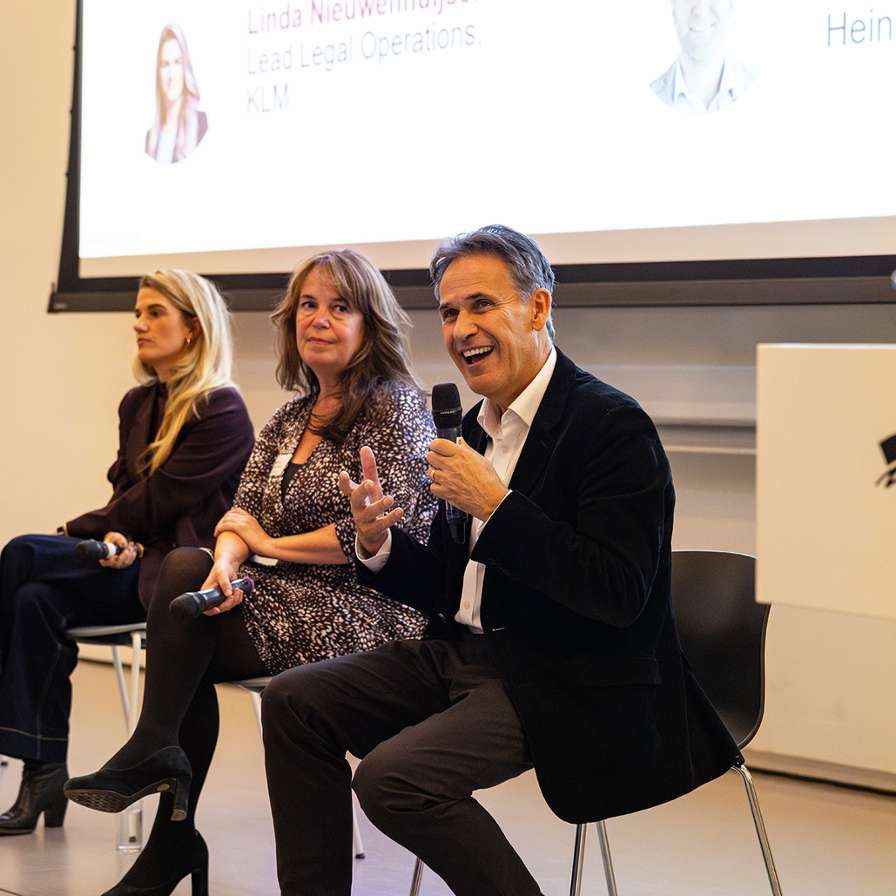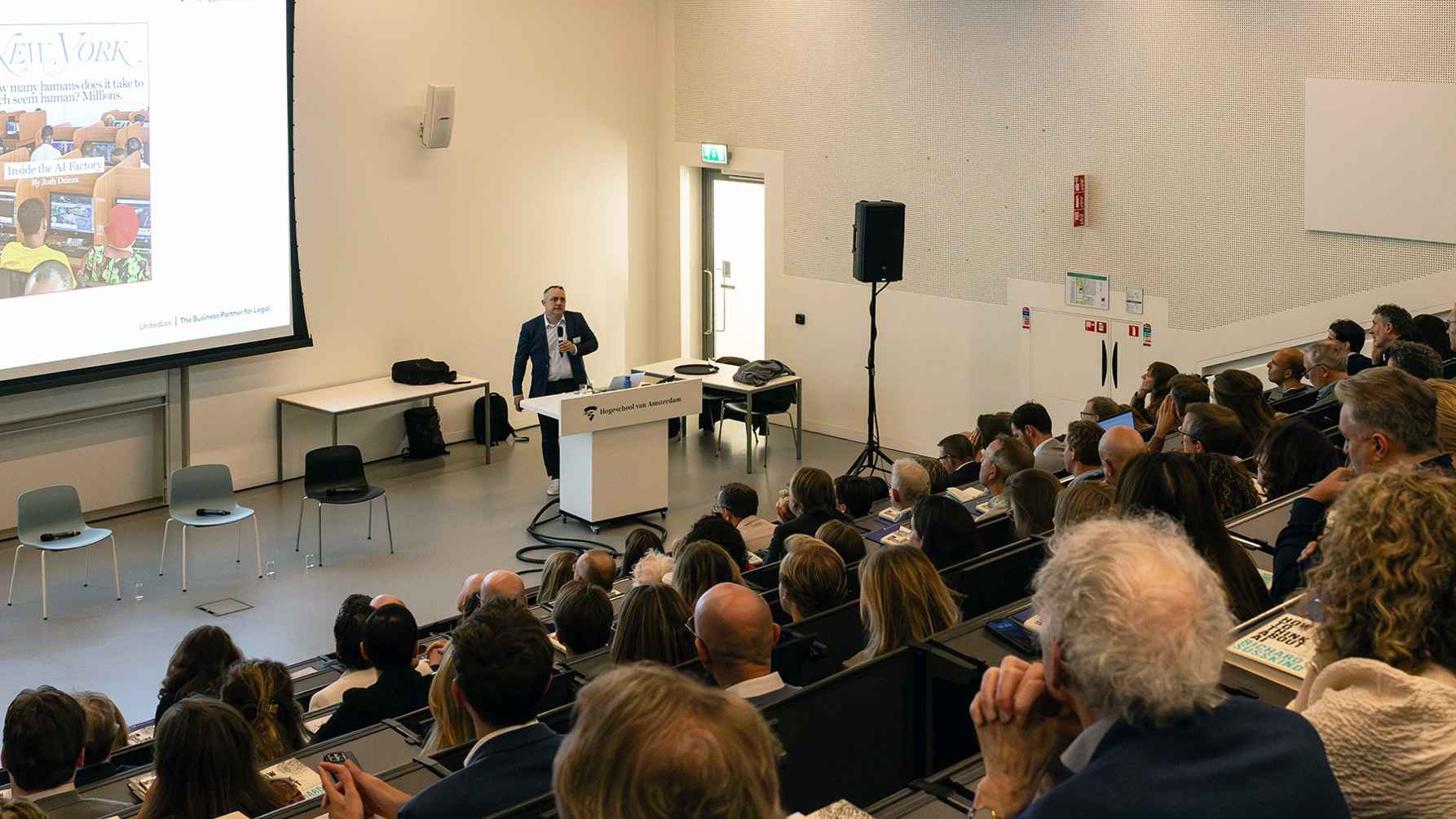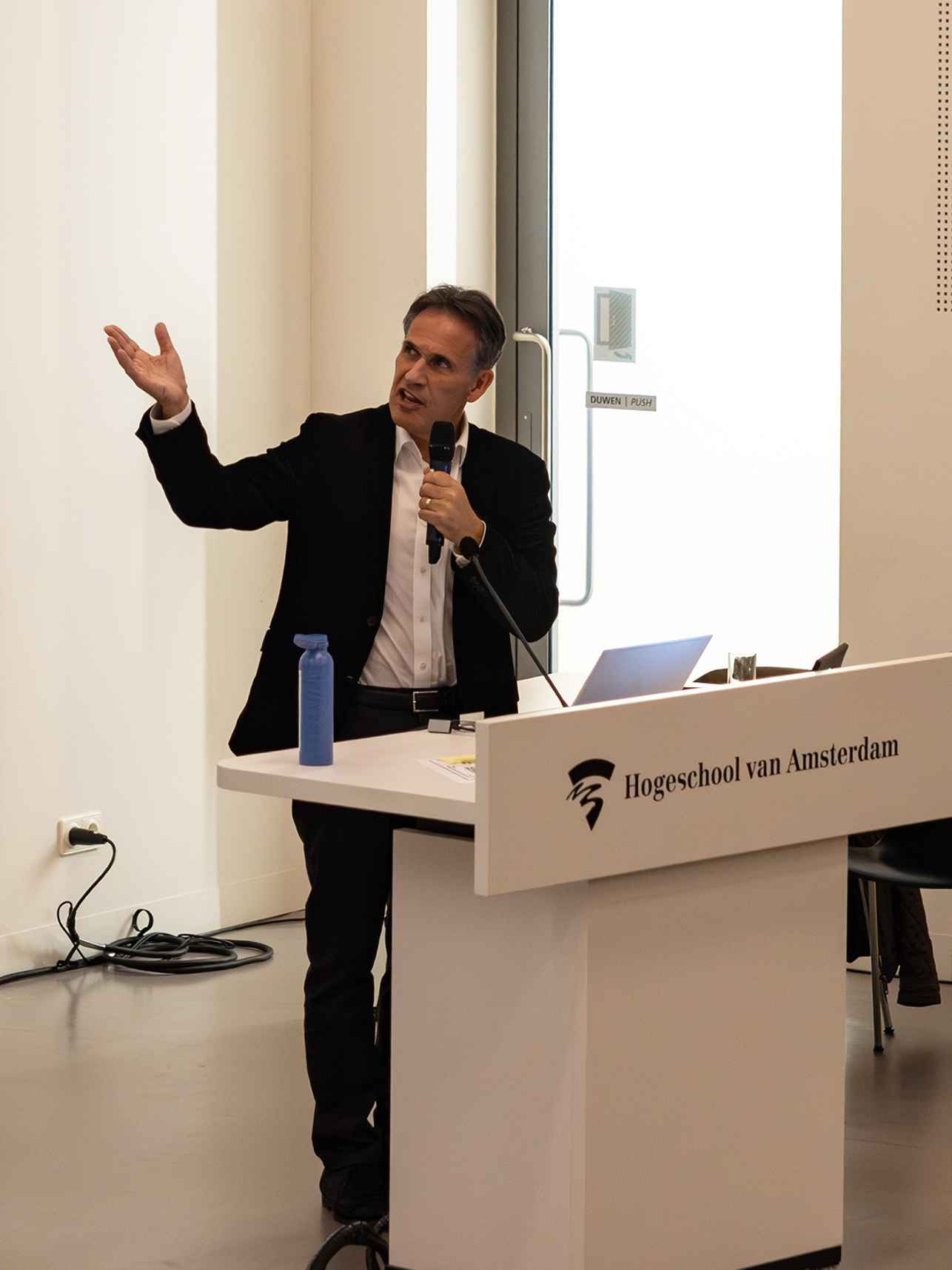AI expert Susskind: “AI will change the nature of legal practise itself”

On Tuesday 30 September the Amsterdam University of Applied Sciences (AUAS) organised a debate. Keynote speaker: Professor Richard Susskind, author of best-selling books on AI and legal tech. In collaboration with UnitedLex and Erasmus University Rotterdam, lawyers, researchers, and students gathered to discuss the impact of AI on legal practise and legal education. "The biggest mistake lawyers can make is thinking that AI is all about them. But AI and legal tech are about the future of law and justice."
What sparked the debate
The evening was triggered by an opinion piece in Dutch newspaper NRC, in which two professors argued that generative AI should be banned in law schools: "Don't hand over the rule of law to AI." The piece sparked fierce reactions on LinkedIn, from support to sharp criticism.
Ivar Timmer, lecturer in Legal Management & Technology at the AUAS: “I, too, advocate for a critical approach to AI, but this was, of course, an extreme stance. Everyone was falling over themselves: this is going too far. A debate was a logical step. AUAS plays a leading role in Dutch research on the use of technology in legal practice. As a university of applied sciences, we conduct this research in ways that are closely tied to professional practice: together with businesses, government, and knowledge partners. This allowed us to attract panelists from a wide range of professional fields.”

In his introduction to the evening, Timmer highlighted the new Master in Legal Tech that the AUAS launched in September, and the Legal Tech Lab, which is part of the broader Applied AI programme across all AUAS faculties. Thanks to strong networks, such as Tech in Legal(opens in new window) (corporate legal departments that share software experiences) and digitalevertalingen.nl(opens in new window) (public sector and knowledge institutions), Timmer believes the AUAS is the ideal place to have these discussions.

Keynote Richard Susskind
To the packed audience, many of whom were undoubtedly familiar with Richard Susskind, it was no surprise that he is a skilled speaker. When he spoke about the potentially extreme, disruptive consequences of AI for legal practice, you could have heard a pin drop. Because everyone present, whether a student or the head of Legal Operations at a multinational, knows that AI will disrupt things, without knowing exactly what. Susskind emphasized that generative AI, however impressive, is only the first chapter in a much broader technological revolution.
Takeaways
The short-term focus on automation is understandable. AI makes it possible to perform repetitive tasks faster and cheaper. Such as searching contracts, drafting standard documents, or checking compliance. This delivers immediate efficiency gains and reduces costs. But those who get stuck there miss the bigger picture.
Why? According to Susskind, the real transformation will only begin when we no longer view AI simply as a tool to accelerate existing processes, but as a catalyst for entirely new ways to prevent legal problems altogether. Instead of "faster litigation," technology can help us predict, prevent, or directly resolve disputes digitally.
In that scenario, AI-driven tools themselves become law firms' competitors. Citizens and businesses can handle many legal matters independently, from contracts to dispute resolution, using accessible tools. The lawyer is no longer the indispensable intermediary.
And so, the crucial question for lawyers is no longer: how can AI make my work easier? The question is: how should legal services, at their core, be reimagined in a digital society?
Debate: Embrace the uncertainty and have fun
The panel brought together speakers from diverse sectors of the legal profession, from large corporations to startups to educational institutions. At Heineken, AI is already being used to screen marketing materials and press releases for risks such as greenwashing, and in contract management so that departments can draft contracts themselves more quickly within established frameworks. According to Sean Houston, Head of Legal Operations at Heineken, it's all about helping the business move faster: "Whether it takes a minute or a month – we prefer a minute."
At KLM, AI is also widely used. Linda Nieuwenhuijsen, Lead Legal Operations at KLM, emphasized that the hype actually helped create involvement: colleagues were eager to participate in pilots. The panel agreed that AI currently primarily delivers efficiency, but true innovation requires us to look beyond task automation and dare to develop new legal models. Increasingly, clients will use AI to handle contracts and disputes directly themselves. The opportunity for lawyers is to help build these systems rather than be replaced by them. A large number of new professions will emerge, such as legal data scientist and legal knowledge engineer.
Mirjam van der Sluis, Staff and Innovation Manager at the City of Amsterdam, offered some poignant closing remarks. She responded to a question from an audience member about the uncertain future posed by AI. Mirjam: "Embrace the uncertainty. Share your dreams and fears with your colleagues, and also see it as something fun. This isn't a time for waiting, but for experimenting together and having fun."
Conclusion: a tipping point
The evening made it clear that the legal world is at a tipping point. While AI is currently primarily seen as a handy assistant, the real challenge lies in reinventing how law is made accessible to citizens and businesses. Universities and colleges play a key role in training a new generation of lawyers: hybrid professionals who are proficient not only in law, but also in technology, data, and design thinking. As Susskind aptly put it:
It's not about how AI makes lawyers' work easier, but about how AI empowers citizens and organizations to solve their own legal problems.

Richard Susskind
Professor and author
Follow-up debate December 1
This week, on October 3, a follow-up debate will take place in Rotterdam. The focus there is on AI and legal education. In other words, how legal training should adapt to the rise of AI and new technologies. Due to the strong interest in this debate, a repeat session will be held on December 1 at AUAS.